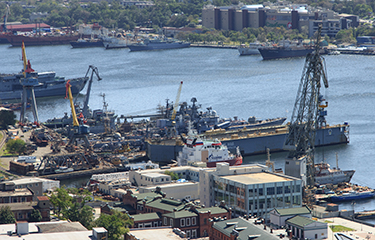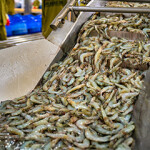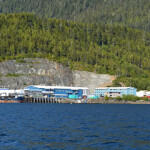Russian fishing-equipment manufacturers awarded government subsidies

The Russian government said it will allocate RUB 17.2 billion (USD 275.7 million, EUR 261.2 million) between 2023 and 2025 to aid 36 fishing vessel equipment projects in production in an attempt to make up for the loss of Western suppliers.
Authorities have set relatively lax criteria to receive the subsidies in a bid to help the domestic manufacturing industry fill gaps left by foreign suppliers withdrawing from Russia. The need to manufacture sophisticated equipment for ships of various kinds – especially for the country’s fishing fleet – emerged after equipment producers like Wartsila, MAN SE, Alfa Laval, Palfinger Marine, and others withdrew from the country following Russia’s invasion of Ukraine.
On 6 December, media agency Mashnews reported the government had selected 66 projects from 36 organizations for funding from 73 proposals. The projects relate to propulsion complexes, deck equipment, ballasting systems, roll-stabilization systems, and more. The manufacturers of large-capacity ships will also receive funding to produce electric engines, steerable propellers, and lifeboats. Other manufacturers of ship radio electronics will receive funding for radio detection and ranging equipment made with domestically-produced electronic components and ship-navigation systems.
Fishing fleets will also receive aid for onboard processing facilities and the equipment needed for them – such as fish elevators and fish meal lines – specialized sonar, depth sounders, and hydroacoustic appliances for fishing vessels.
Media agency Portnews reported the projects must be implemented within a five-year period. If modernization of the production facilities is needed, that timeline can be extended for up to six years. The subsidy covers up to 80 percent of the investments that are necessary for a project, and the money is allowed to be spent on salaries for the employees engaged in the project and renting equipment, properties, and other needs associated with design and implementation.
Localizing production is just the first step toward full-scale import substation. Norebo Deputy CEO Sergey Sennikov told media agency Paluba that while the subsidies are a positive step, for Norebo’s ambitious ship-building program replicating or substituting ship-building equipment must be accompanied by programs to improve Russia's own capabilities for maintenance, repair, and stocking of spare parts.
Photo courtesy of Urri/Shutterstock






Share